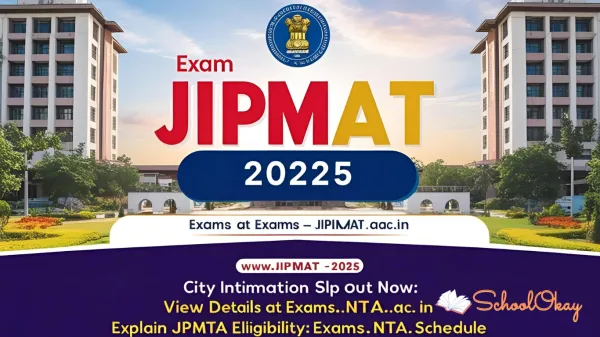UPSC paper pattern for prelims, mains and interview
The UPSC examination prelim, main and interview. The IAS (UPSC) examination is conducted by the Union Public Service Commission.

There are three phases of the UPSC examination, namely the prelim, main and interview round. The IAS (UPSC) examination is conducted by the Union Public Service Commission.
The examination is conducted to recruit suitable and worthy candidates for positions like IAS, IPS, IFS, and other higher service positions.
This examination is conducted to check the overall capabilities of the student. If you want to clear the examination easily, the candidate must have knowledge about the UPSC examination pattern.
In this article, we have compiled the details of the prelim and main examination pattern along with the interview round. Knowing the examination pattern will help the students prepare well for the examination and manage their time well.
The UPSC examination paper pattern
Broadly, the UPSC examination is conducted in three stages, namely
- Prelims examination
- Mains examination
- Personality test/Interview round
Those candidates who clear all three rounds of the UPSC examinations are further qualified for a position in civil services.
Every round here is an elimination round, so if you want to qualify for the round and move to the next one, you need to perform well.
Let's discuss the exam pattern for all three rounds and what you can expect in this examination.
IAS UPSC preliminary examination paper pattern
The UPSC CSE preliminary examination consists of two papers, namely General Studies-1 and General Studies Paper-2, also called CSAT.
While the CSAT examination is simple to qualify for, your GSE-1 ( General Study paper 1) exam scores will determine your eligibility for the UPSC main examination.
- This means that the score a candidate gets in the General Studies paper-1 will be the prelims cutoff.
- Additionally, like most other competitive examinations, the prelims examination also has a negative marking pattern. As a penalty for marking the wrong answer, 1/3rd of the marks allotted for the questions will be cut.
- However, if the candidate doesn't attempt the question, then there is no negative marking. Thus, you need to be very careful and take calculated risks while marking the questions.
- There are 100 questions in General Studies Paper 1 with an allotted mark of 200. The time allotted for attempting this paper is 2 hours, and the marks from this paper will be considered for the cutoff.
- In the CSAT examination, 80 questions consist of 200 marks. To qualify for the CSAT examination, candidates must score at least 33%. The time allowed for this examination is also 2 hours.
- About the UPSC examination pattern, there are certain things that you need to keep in mind.
- To qualify for the main examination, the candidates must appear for the General Studies 1 and CSAT examinations.
- The UPSC CSE prelims examination is for screening purposes only, and the numbers will not be added to the final scores.
- The question paper of the prelims examination is in two languages: Hindi and English.
- There are negative markings for every wrong answer, so be careful while marking the answers.
The UPSC examination pattern for the IAS Main Examination
- The IAS main examination consists of two types of papers: qualifying and merit ranking.
- Both the papers, Paper A and Paper B, the language and the English paper, will be qualifying in nature.
- The marks obtained in these examinations will not be added to those marks that will determine the rank. However, the other papers' marks will be evaluated for merit purposes.
- Paper A and Paper B, namely Compulsory Indian Language and English, are the qualifying examinations. These examinations consist of 300 marks and last 3 hours each.
- After this, a Paper 1 Essay is due in 3 hours and consists of 250 marks. It is also descriptive, and the marks are counted for merit purposes.
- Paper 2, Paper 3, Paper 4 and Paper 5 are General Studies 1, General Studies 2, General Studies 3 and General Studies 4, respectively. These are descriptive, and marks are counted to decide the merit. All these exams are conducted in a time period of 3 hours and are worth 250 marks each.
- Further, Paper 6 and Paper 7 are Optional I and Optional 2. These are for 3 hours each and are worth 250 marks each. They are descriptive and also decide the merit of the candidate.
Things to be kept in mind while preparing for the UPSC CSE Mains examination.
- Remember that, except for the language papers, the marks in all the other papers will determine your merit and rank in the UPSC exam.
- To be evaluated during the final selection, it is important to score at least 25% on each paper. The total score will be 1750 points.
- The answer sheets that UPSC provides should be used, and no extra sheets will be provided to the candidates.
General studies papers
The main examination consists of general studies papers. These are the subjects that are included in the Paper of General Studies.
- General Studies 1 consist of, History and Geography, Society, and Indian Heritage and Culture.
- General Studies 2 consists of Social Justice, International Relations, Governance, Constitution and Polity.
- Technology, Biodiversity, Environment, Economic Development, Security, and Disaster Management are examples of General Studies 3 topics.
- General Studies 4 include Ethics, Integrity, and Aptitude.
Optional subjects for the UPSC Mains examination
- Agriculture
- Civil engineering
- Geology
- Psychology
- Mechanical engineering
- Animal Husbandry and Veterinary Science
- Commerce and accountancy
- Husbandry
- Medical Science
- Public Administration
- Botany
- Chemistry
- Anthropology
- Economics
- Law
- Philosophy
- Sociology
- Electrical engineering
- Management
- Physics
- Statistics
- Geography
- Mathematics
- Political Science and International Relations
- Zoology
Options for literature subjects include
- Dogri
- Hindi
- Assamese
- Malayalam
- Punjabi
- Telugu
- Bengali
- Manipuri
- Sanskrit
- Urdu
- Kannada
- Bodo
- Kashmiri
- Marathi
- Santhali
- English
- Konkani
- Nepali
- Sindhi
- Maithili
- Odia
- Tamil
- Gujarati
Here is the PDF for the list of optional subjects by UPSC.
IAS Examination pattern: UPSC Interview Process
The interview round is the last and final step of the UPSC selection process. The interview round consists of 275 marks, the addition of which makes the total of 2025 marks.
There are certain qualities that the board looks for in the candidate who appears for the interview round. These include:
- Critical thinking.
- Mental acuity.
- Risk management abilities.
- Crisis management skills.
- Analytical thinking.
- Leadership qualities and the ability to become a leader.
- More intellect and integrity.
These are certain qualities that if the candidate possesses and is successful in satisfying the board members, then getting good marks for the candidate is not a tough task.
Frequently asked questions
- What is the age limit to appear for the civil service examination?
Ans. The candidate must be 21 to 32 years old for the general category.
- What is the educational qualification for the civil service exam?
Ans. The educational qualification for the civil service examination is that the candidate must have completed a bachelor's degree from an Indian university. The final year students are also eligible to apply for the UPSC examination.
- What are the limits to civil service exam attempts?
Ans. General category candidates can attempt the exam a maximum of six times. The OBC section can attempt the examination nine times. There is no limit to the number of attempts while handicapped. Those who belong to SC/ST and are handicapped can attempt the exam multiple times.
- How many optional subjects do the candidates have to select?
Ans. Candidates can choose only one of the optional subjects listed in the UPSC notifications.
- What are the total marks of the UPSC CSE Mains?
Ans. The total marks of UPSC CSE Mains have a total score of 1750, to which a score point of 275 can be added after the personality test or interview round.
- How many subjects are asked in the UPSC examination?
Ans. As per the UPSC Examination pattern so far, there are two compulsory language papers, 4 general studies papers, and there are 2 optional papers in the UPSC mains examination. However, in the prelims examination, there is one general studies paper and 1 CSAT examination. This is how the subjects are there in the pattern of the UPSC examination.
Also read:
Best Books for UPSC exam preparation.
How to Begin Preparation for the UPSC Exam.
Why you should meditate during your exams.
Share and subscribe to the blog by email.





